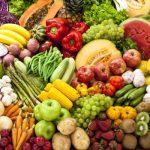
Food preservation is essential for extending the shelf life of perishable items, maintaining nutritional value, and ensuring food safety. Several methods exist, including canning, dehydration, freezing, and freeze drying. Each method has its own set of advantages and disadvantages, making it crucial to understand how they compare to make an informed choice.
Canning: Pros and Cons
Pros:
Long Shelf Life: Canned foods can last for years when stored properly.
Nutrient Retention: While some nutrients are lost during the canning process, many remain intact.
Variety: Almost any type of food can be canned, including fruits, vegetables, meats, and prepared meals.
Convenience: Canned foods are ready to eat or require minimal preparation.
Cons:
Nutrient Loss: Heat processing can degrade sensitive vitamins and minerals.
Texture and Flavor Changes: Canning can alter the texture and flavor of food, making it softer or less vibrant.
Bulky Storage: Canned goods are heavy and take up a lot of space.
Risk of Contamination: If not done correctly, canning can lead to contamination and foodborne illnesses, such as botulism.
Dehydration: Pros and Cons
Pros:
Extended Shelf Life: Dehydrated foods can last for months to years if stored in airtight containers.
Nutrient Preservation: Dehydration retains most nutrients, although some are lost due to heat.
Portability: Dehydrated foods are lightweight and easy to transport, making them ideal for hiking and camping.
Cost-Effective: Dehydration is relatively inexpensive and can be done at home with minimal equipment.
Cons:
Texture Changes: Dehydration significantly alters the texture, making foods chewy or brittle.
Flavor Concentration: While some people enjoy the intensified flavors, others may find them overpowering.
Rehydration Needed: Many dehydrated foods need to be rehydrated before consumption, which can be time-consuming.
Limited Application: Not all foods can be dehydrated effectively, limiting the variety of preserved foods.
Freezing: Pros and Cons
Pros:
Nutrient Retention: Freezing preserves most nutrients, making it one of the best methods for nutrient retention.
Minimal Texture Changes: Freezing maintains the original texture of most foods, especially if they are properly packaged.
Convenience: Frozen foods are easy to prepare and often require minimal cooking.
Variety: Almost any type of food can be frozen, from raw ingredients to fully prepared meals.
Cons:
Limited Shelf Life: While freezing extends shelf life, it is generally limited to a few months to a year.
Energy Dependence: Freezers require constant electricity, making them vulnerable to power outages.
Space Requirements: Freezers take up significant space and have limited capacity.
Quality Degradation: Over time, frozen foods can suffer from freezer burn and lose quality.
Freeze Drying: Detailed Benefits
Nutrient Preservation: Freeze drying is the best method for preserving the nutritional content of food. The process involves freezing the food, reducing pressure, and removing the moisture through sublimation. This method retains up to 97% of the original nutrients.
Extended Shelf Life: Freeze-dried foods can last for 20-25 years when stored in proper conditions. This makes it an excellent choice for long-term food storage and emergency preparedness.
Minimal Texture and Flavor Changes: Freeze drying maintains the original texture, flavor, and appearance of the food. Once rehydrated, the food closely resembles its fresh state.
Lightweight and Portable: Freeze-dried foods are extremely lightweight and easy to transport. This makes them ideal for backpacking, camping, and other outdoor activities.
Variety and Versatility: Almost any food can be freeze-dried, including fruits, vegetables, meats, and complete meals. This versatility allows for a diverse and balanced diet, even in situations where fresh food is unavailable.
Easy Rehydration: Freeze-dried foods can be easily rehydrated with water, making them convenient for quick meals.
Reduced Food Waste: By freeze drying excess produce, garden harvests, or leftovers, you can significantly reduce food waste.
Eco-Friendly: Freeze drying requires less energy for storage compared to frozen foods and helps reduce the carbon footprint by minimizing food waste.
Conclusion:
While all food preservation methods have their advantages, freeze drying stands out for its superior nutrient preservation, extended shelf life, and minimal impact on food texture and flavor. The convenience, variety, and eco-friendliness of freeze-dried foods make them an excellent choice for home use, outdoor adventures, and emergency preparedness. By understanding the benefits and limitations of each method, you can make informed decisions about how best to preserve your food and ensure a reliable, nutritious food supply.


